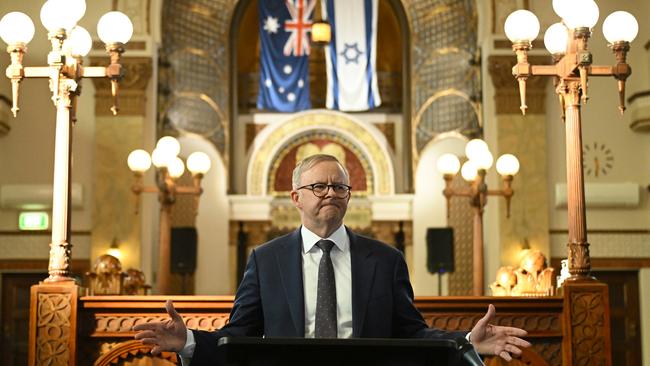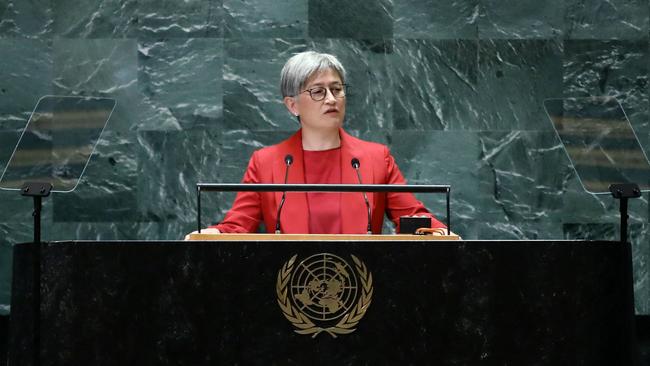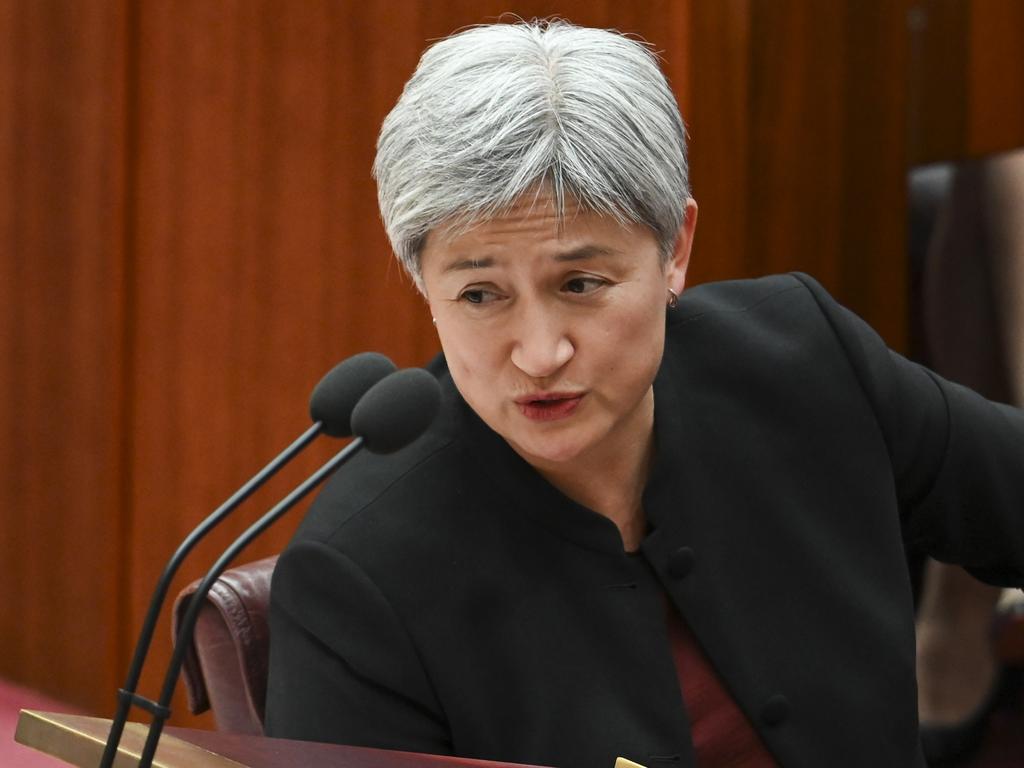
It comes as no surprise to the Jewish community or anybody else that yet again Australia has presided over a reversal of a previously held bipartisan position.
The justification for the latest volte-face before the UN is as weak as it is implausible, considering there has been no substantive explanation for a change in the underlying circumstances since the two issues being recontested were last voted on. In fact, there was no explanation at all outside a vague rationalisation that the decision was founded in a context of the most recent conflict.
There was no mention in the resolution that the current conflict was triggered by the Hamas terrorist attack last year. And there was only disappointment from Australia that Hezbollah didn’t get a mention. Despite this, the federal government, on behalf of Australians, voted in favour of Palestinian sovereignty over all resources in the occupied/disputed territories, while also voting in favour to blame Israel for an oil slick in Lebanon arising from the 2006 conflict.
Anthony Albanese declared before the election that there would be no change of Middle East position under a new Labor government. Despite this pledge, Australia has reversed its position five times in the past two years.
This latest change of position will be noticed in the US. The question for Foreign Minister Penny Wong is: what has changed since the last time Australia voted on these questions, to prompt a reversal of position? Why the change of heart?
At the time of publication, this remained objectively unclear, despite the vote having taken place 12 hours earlier. At best, the validation was rooted in an ideological shift in position rather than factual analysis.

The UN General Assembly’s latest grudge punch on Israel has come at the worst time for the Albanese government, considering all the other substantive issues it will be forced to confront with a Trump administration, including tariffs, AUKUS and Kevin Rudd.
While Australia doesn’t get to choose the time of UN votes it surely has a choice on what its decisions will be. Forget the fact that it puts Australia completely out of alignment with Donald Trump, who has made his position clear on Israel, this latest reversal is a decision that cuts across the current Biden administration as well.
Australia has often used Canada as a proxy for its decisions to break with the US on Israel. This time Canada sided with the US.
Australia instead decided to join New Zealand and the new UK Labour government.
There is now a significant split within the Five Eyes intelligence arrangement between the US, Canada, the UK, Australia and New Zealand. More than that, it puts Australia further out of alignment with our most important strategic partner on an existential question over which, since the Whitlam government, there had rarely been an inconsistent position until a collapse in the ideological ballast of the NSW Labor Right.
One can only assume that having given no convincing rationale for the change of heart during the second committee meeting of the UN General Assembly, Australia signalled it no longer wanted to be in the minority when it came to votes that sought to sanction Israel. If true, this is a juvenile justification for a reversal of position on two issues where there appears to have been no demonstrable change.
It took almost 12 hours for the government to provide a response to why Australia voted the way it did. A full General Assembly vote won’t be held until later this month and a position can always be changed. In this case it is unlikely.
The short response from Wong’s office provided no explanation. “Australia voted in favour of this resolution alongside more than 155 members of the international community, including the UK, New Zealand, France, Germany and Japan,” it read. “While Australia does not agree with everything in the resolution, this vote reflects international concern about Israeli actions that impede access to natural resources, and ongoing settlement activity, land dispossession, demolitions and settler violence against Palestinians. We have been clear that such acts undermine stability and prospects for a two-state solution.”
The background to this is clear. Wong’s position is an upturning of current thinking, which holds to an antecedent that for a two-state solution to be achieved, an enduring peace needs to be brokered first. Wong has put a two-state solution as a means to peace. She clearly believes the jettisoning of previously held support for Israel on UN votes is the pathway to this outcome. But the domestic imperative can’t be discounted. Labor’s existential battle with the Greens over Palestinian politics can’t be discounted as the primary motivation in decisions that would otherwise appear bewildering.
Australia/Israel & Jewish Affairs Council executive director Colin Rubenstein made the point that since 2006, all Australian governments had voted the other way on the oil slick question because it ignored the environmental destruction Hezbollah caused in Israel during the 2006 war. On the “permanent sovereignty” resolution, he said, Australia had voted No or abstained from this resolution since 2003.
“Voting yes for this resolution puts Australia at odds with our own position on the Israeli-Palestinian peace process, which is absurd,” Rubenstein said.







The Albanese government, if nothing else, has been consistent in its foreign affairs deception over Israel.